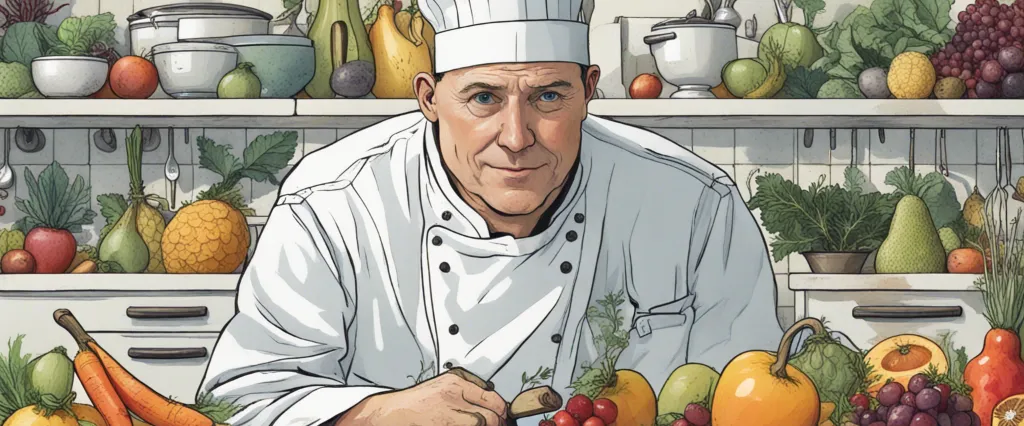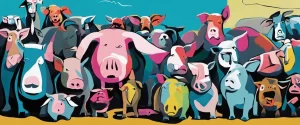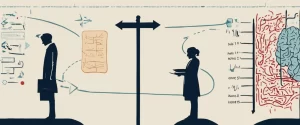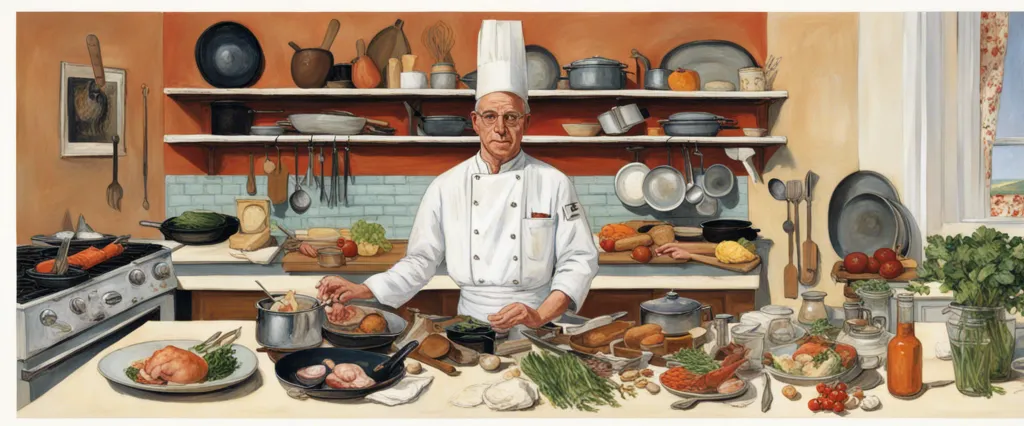
In the realm of food literature, few authors have captivated readers and transformed their approach to how they consume nourishment quite like Michael Pollan. With his thought-provoking insights and meticulous research, Pollan has become a prominent voice in the ongoing conversation surrounding food, its production methods, and the repercussions for human and environmental health.
Within Pollan’s extensive bibliography, two of his most renowned works stand out: “Cooked” and “The Omnivore’s Dilemma.” Both books delve into the multifaceted nature of food, but each takes a distinct approach, examining diverse aspects of our relationship with what we eat. In this comparative study, we aim to explore the overlapping themes, as well as the unique contributions, of these two captivating pieces.
Cooked delves into the transformative power of cooking and how rediscovering this ancient practice might revolutionize our relationship with food. Pollan embarks on a journey through the four elements—fire, water, air, and earth—and elucidates the historic, cultural, and psychological significance of cooking in human evolution. By interweaving his personal experiences with the wisdom of culinary experts, Pollan reveals the potential for profound connection and nourishment that lies in engaging with the cooking process.
On the other hand, “The Omnivore’s Dilemma” takes a broader perspective, brilliantly unraveling the intricate web of food production and consumption in the modern industrialized world. Pollan challenges readers to understand the origins of their meals by tracing four different food chains: industrial, organic, local, and foraged. Through meticulous research and immersive experiences, he sheds light on the complexities of our food choices, their impact on the environment, farm animals, and human health, and the ethical considerations that arise within these systems.
As we embark on this comparative study, we will explore the overarching themes tackled by Pollan in both books: the inherent human desire for connection, the role of food as a cultural symbol, the ethics of food production, and the impact of our choices on personal and environmental well-being. By analyzing the similarities and differences in narrative styles, perspectives, and explored topics, our objective is to gain a comprehensive understanding of the significant insights Pollan offers in these seminal works.
Ultimately, this comparative study aims to illuminate the transformative power of food, cooking, and conscious consumption as we navigate the complexities of modern society. Through the lens of Pollan’s literary contributions, we hope to deepen our understanding of how our choices shape not only our individual lives but also the world we inhabit.
Brief Summary of Two Books
Cooked by Michael Pollan
Cooked” by Michael Pollan is a non-fiction book that explores the transformative power of cooking and the importance of reclaiming our connection to food. In the book, Pollan divides his exploration into four elements: fire, water, air, and earth, each representing a different cooking method.
In the section on fire, Pollan delves into the world of barbecue and the art of slow cooking with fire. He explores various techniques, traditions, and cultures surrounding barbecuing to understand the primal instinct and communal nature of cooking meat over fire.
Moving on to water, Pollan travels to the kitchen and delves into the science and art of braising and stewing. He learns the value of patience and brings alive the magic that happens when ingredients are combined with water and transformed into rich and flavorful stews.
Next, in the air section, Pollan focuses on baking and the process of making bread. He learns the importance of fermentation and how bread-making has evolved from a simple tradition to an industrialized process. He also explores the relationship between gluten and health and delves into the revival of artisanal bread-making.
Finally, in the earth section, Pollan delves into the world of fermentation and its impact on health and flavor. He explores the process of making cheese, beer, and sauerkraut, unveiling the fascinating role of microbes in transforming simple ingredients into complex and delicious foods.
Throughout the book, Pollan emphasizes the importance of cooking for oneself and reclaiming the control over our food. He highlights how industrialization and convenience have led to a disconnection from our food sources, leading to health issues and a degradation of food quality. Ultimately, “Cooked” inspires readers to reconnect with the natural processes of cooking and embrace the transformative power of food.
The Omnivore’s Dilemma by Michael Pollan
“The Omnivore’s Dilemma” by Michael Pollan explores the complex and multifaceted nature of our modern food system. Pollan delves into four main food chains that dominate the American diet: industrial food, organic food, industrial organic food, and hunter-gatherer food.
In the first section of the book, Pollan takes a deep dive into the industrial food chain, tracing the origins of a fast-food meal from cornfields in Iowa to feedlots and factories where it is processed and packaged. He sheds light on the heavy reliance on corn in the American food system and the environmental, social, and health impacts associated with this industrialized approach.
Moving on to the second section, Pollan explores the organic food chain, discussing the origins of an organic meal and its relation to sustainability and animal welfare. He provides insight into the organic farming movement and the ethical concerns associated with it, such as the exploitation of migrant workers and the challenges of scaling organic farming to meet the demands of the population.
The third section focuses on industrial organic food, which brings together elements of both the industrial and organic food chains. Pollan examines the differences between small-scale organic farms and large-scale organic operations. He raises questions about whether industrial organic farming can truly align with the principles of sustainability and advocate for healthier eating practices.
Finally, Pollan explores the potential of a hunter-gatherer food chain and the idea of sourcing food directly from nature. He explores his own experience hunting and foraging for a meal and reflects on the inherent connection between humans and the natural world.
Throughout the book, Pollan intertwines personal anecdotes, historical context, and scientific research to shed light on the choices we face when it comes to food. He encourages readers to think more deeply about their food choices, their impact on the environment, and the consequences for their own health and well-being. Ultimately, “The Omnivore’s Dilemma” challenges readers to reconsider the way they eat and the broader implications of their food choices.
Comparison between Two Books
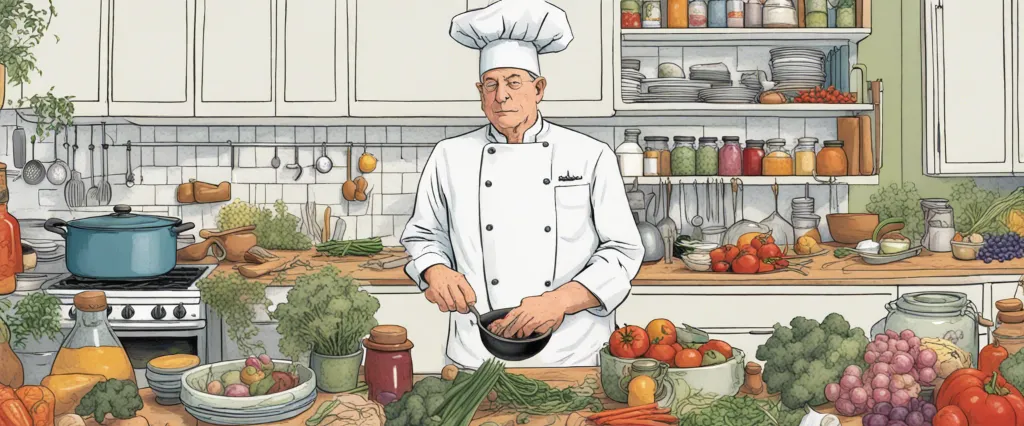
Similarities in Food Culture
Both Cooked and The Omnivore’s Dilemma, written by Michael Pollan, delve into the topic of food culture and explore various aspects of our relationship with food. Despite covering different angles and contexts, the books share several similarities in their exploration of food culture.
1. Appreciation for traditional food preparation: Both books emphasize the importance of traditional and time-honored food preparation methods. Pollan highlights the significance of cooking from scratch using whole ingredients and paying homage to ancestral food cultures. He believes that reconnecting with traditional cooking practices can improve our overall relationship with food.
2. Connection between nature and food: In both books, Pollan highlights the intrinsic connection between nature and the food we consume. He explores the impact of industrial agriculture and the importance of sustainable and locally-sourced ingredients. By understanding where our food comes from and how it is produced, Pollan suggests that we can make more informed and responsible food choices.
3. The cultural significance of communal meals: Both books emphasize the significance of communal meals in fostering a sense of community and culture. Pollan explores the cultural practices of sharing meals and the sense of belonging that arises from these shared experiences. He advocates for reclaiming the tradition of sitting down together for a meal and prioritizing the social aspect of eating.
4. Critique of the industrial food complex: Both books scrutinize the industrial food complex, highlighting its negative implications for both human health and the environment. Pollan questions the dominance of processed and convenient foods and explores the consequences of relying heavily on industrial farming practices. He encourages readers to consider alternative food systems that promote sustainability and health.
5. The role of personal involvement in food: Both books emphasize the importance of personal involvement in our food choices. Pollan argues that actively engaging with the process of growing, cooking, and understanding food can enhance our appreciation for it. By becoming more informed consumers, we can contribute to a healthier and more sustainable food culture.
Overall, these books share a deep commitment to exploring and understanding the complexities of food culture, highlighting the importance of traditional food practices, the connection between nature and food, communal meals, critiquing the industrial food complex, and the role of personal involvement in our food choices.
Divergences in Food Culture
In both “Cooked” and “The Omnivore’s Dilemma,” Michael Pollan delves into the world of food and its wider implications on culture. However, these books differ in their approaches to food culture and how they tackle the topic.
One key divergence lies in the scope of the food culture discussed. In “Cooked,” Pollan focuses on the transformative power of cooking and its impact on human relationships and society. He explores four basic cooking techniques – fire, water, air, and earth – and delves into their historical, cultural, and personal significance. With a more intimate and personal tone, he highlights the importance of reconnecting with the cooking process and its ability to foster connection, resilience, and human flourishing.
On the other hand, “The Omnivore’s Dilemma” takes a broader approach to food culture. Pollan investigates the origins of our modern food system and its consequences on the environment, health, and society. He analyzes the industrial food chain and its impact on factory farming, obesity, and agricultural sustainability. By examining various food production methods and their ethical implications, the book invites readers to question and reevaluate their food choices to promote a more sustainable and responsible food culture.
Another divergence can be found in the emphasis on personal experiences and reflection. In “Cooked,” Pollan interweaves personal anecdotes and experiences throughout the narrative, using his own journey in learning to cook as a vehicle to explore historical and cultural aspects of food. This approach makes the book more subjective and introspective. Conversely, the focus in “The Omnivore’s Dilemma” is on investigative journalism and research. Pollan’s experiences, although present, take a backseat to the objective analysis and reporting of facts, making the book more informative and thought-provoking.
Lastly, the difference in the central themes of each book contributes to the divergence in food culture discussions. While “Cooked” focuses on the act of cooking itself and the qualities it brings to food and culture, “The Omnivore’s Dilemma” pivots more towards the origins, ethics, and consequences of our food choices. By tackling these different aspects, both books contribute to a nuanced understanding of food culture, drawing attention to the rituals, traditions, and implications associated with our relationship to food.
In conclusion, “Cooked” and “The Omnivore’s Dilemma” share Michael Pollan’s passion for exploring food culture. However, the books diverge in their approach, with “Cooked” emphasizing the transformative power of cooking and personal experiences, while “The Omnivore’s Dilemma” delves into the broader implications and consequences of our food choices. Together, they offer readers complementary perspectives on food culture and invite reflection on our relationship with what we eat.
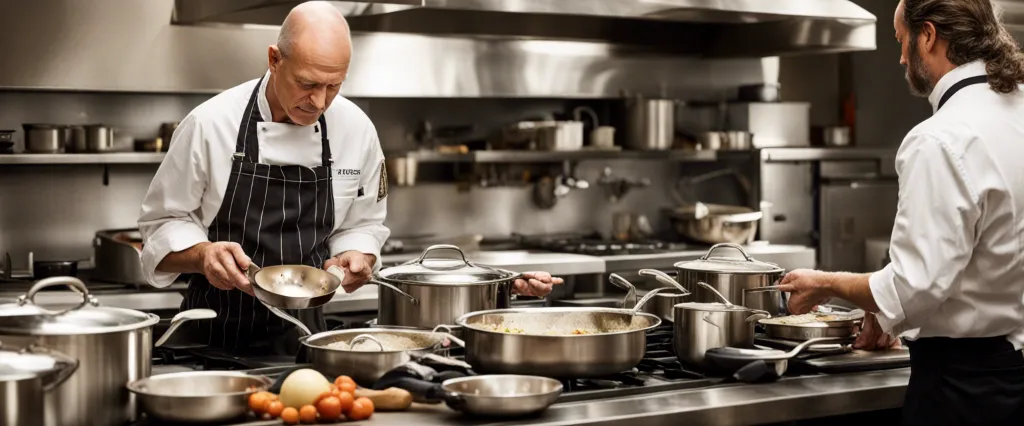
Conclusion
Both Cooked and The Omnivore’s Dilemma by Michael Pollan are widely regarded as worthy books to read, but the ultimate choice depends on your personal interests and preferences.
If you are interested in exploring the history, culture, and social impacts of food, as well as the industrial food system, The Omnivore’s Dilemma is a great choice. In this book, Pollan investigates the sources of our food and delves into topics such as organic farming, industrial agriculture, and the ethics of eating.
On the other hand, if you enjoy cooking and want to deepen your understanding of the culinary arts, Cooked may be the better option. Pollan explores the four elements of fire, water, air, and earth as he learns different cooking techniques. It combines a personal narrative with scientific and cultural insights, making it a fascinating read for food enthusiasts.
Ultimately, it depends on whether you prefer a deep dive into the food system and its impact on society (The Omnivore’s Dilemma) or a more personal exploration of cooking techniques and the pleasures of preparing food (Cooked). Both books offer valuable insights into our relationship with food, so you can’t go wrong with either choice.
